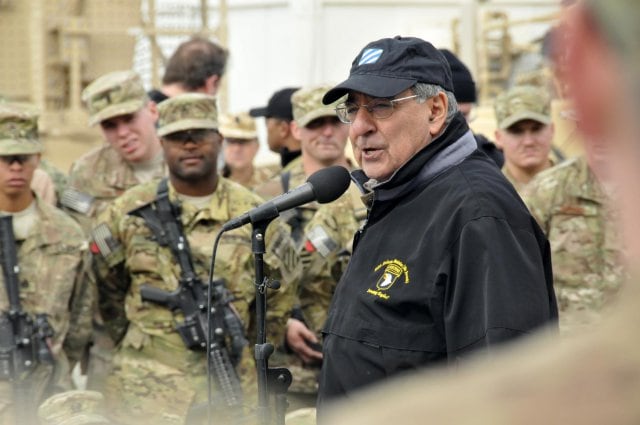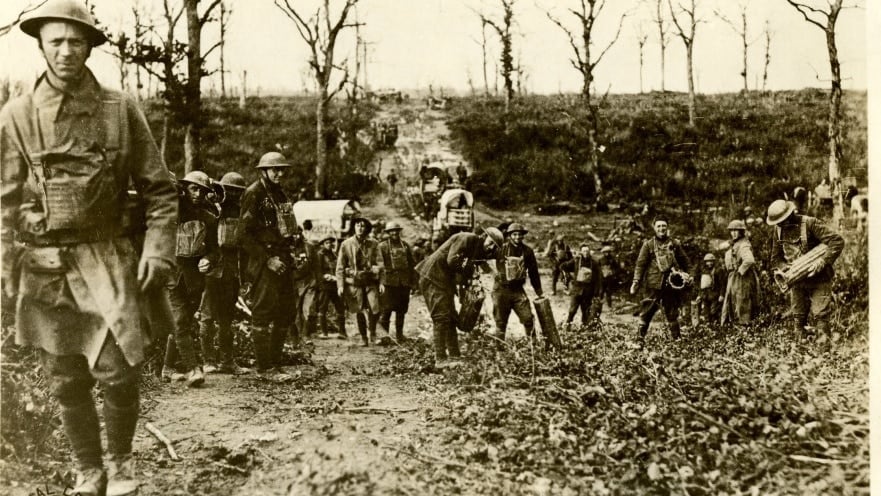Editor's note: The following is an opinion piece. The writer is not employed by Military Times and the views expressed here do not necessarily represent those of Military Times or its editorial staff.
There is an effort underway by the U.S. World War I Centennial Commission to create a national memorial to the American veterans of World War I in Washington, D.C. I firmly support this effort.
World War I is the only great war of the 20th century that doesn't have a national memorial in the nation's capital. That, in itself, makes it important enough for us to do everything possible to make this a reality.
But this memorial is important for a number of other reasons.
First, we have to honor those, and the memory of those, who served our country. World War I involved 5 million men and women who came together in uniform, including 2 million who went overseas and 116,516 who died in the war. We need to take the time to remember their brave sacrifices.
As defense secretary, I had the responsibility to deploy men and women in uniform to our battlefields. I was always reminded of the fact that this country is great because there are those men and women who are willing to put their lives at risk — men and women who will fight, and die, for this country. I've always wondered where these brave young people come from, and why they are willing to do this for us. We have to remember them, those men and women, who were willing to sacrifice so much to defend their nation.

Then-Defense Secretary Leon Panetta speaks with deployed service members and coalition force members at Regional Command (South) headquarters on Kandahar Airfield, Afghanistan, in 2012.
Photo Credit: Staff Sgt. Brendan Mackie/Army
Second, it's important that we remember that World War I was really what brought America to the role of world leadership. World War I was the first time the U.S. engaged with the rest of the world and provided the leadership necessary for the rest of the world to unify to confront a common enemy. We continue to bear the responsibility of world leadership today.
The reality is that if the U.S. doesn't provide leadership in a very troubled world, no one else will. And so, it was World War I that brought America onto the world stage, creating a role we continue to play.
Third, it's very important that this National World War I Memorial be a reminder for the lessons we need to learn from that war. My wife and I have an institute for public policy, and every year, we conduct lectures there that have a common theme. One of the themes we considered was "100 Years From the Beginning of World War I — 1914-2014."
It was basically a forum to discuss the changes that have taken place since 1914-1915, but as I thought about it, and as we had that conversation, we realized that many of the world's flashpoints in 1914 are similar to the flashpoints we confront today: terrorism, nationalism, territorial disputes, fragile alliances. World leadership that wasn't quite able to see what those threats were really about, or how to deal with them in a way that would prevent a world war from happening.
These lessons need to be learned, and need to be remembered. We are living today in a world that has a number of flashpoints: Terrorism. Failed states. People who want to create instability. A new chapter in the Cold War with Russia. Territorial disputes with China. The threat of cyberwarfare, which has the potential to literally cripple this country.
Are we smart enough to deal with all of those challenges, so that we don't find ourselves in another major conflict? Those are lessons from World War I that we need to learn. Memorials help remind us, and provide those important lessons.
Finally, I support this memorial for personal reasons. My father fought in World War I, in the Italian army. He used to tell me what it was like in those conflicts, and how brutal it was at that time. He fought in the Piave Valley, and was wounded in that battle. To hear him tell of his experiences, and to remember what kind of sacrifices he made, had a tremendous impact on me during my service in the U.S. Army. A generation later, my son served in Afghanistan as a member of U.S. special forces. He, too, carried that memory. It's important that families remember those personal sacrifices.
We need to have people in this country understand what war is all about. We forget too quickly. There are people who don't even remember 9/11, much less World War I. We can't afford to forget those conflicts. We can't forget the people who fought them. We can't afford to forget their lessons. If we are to make the right decisions in the future, we better damn well understand the past.
Leon Panetta served as the 23rd defense secretary as part of a half-century in public service. A former Army officer, he founded the Panetta Institute for Public Policy in 1997 and is a special adviser to the U.S. World War I Centennial Commission. Learn more about the commission and the memorial at www.ww1cc.org/memorial .





